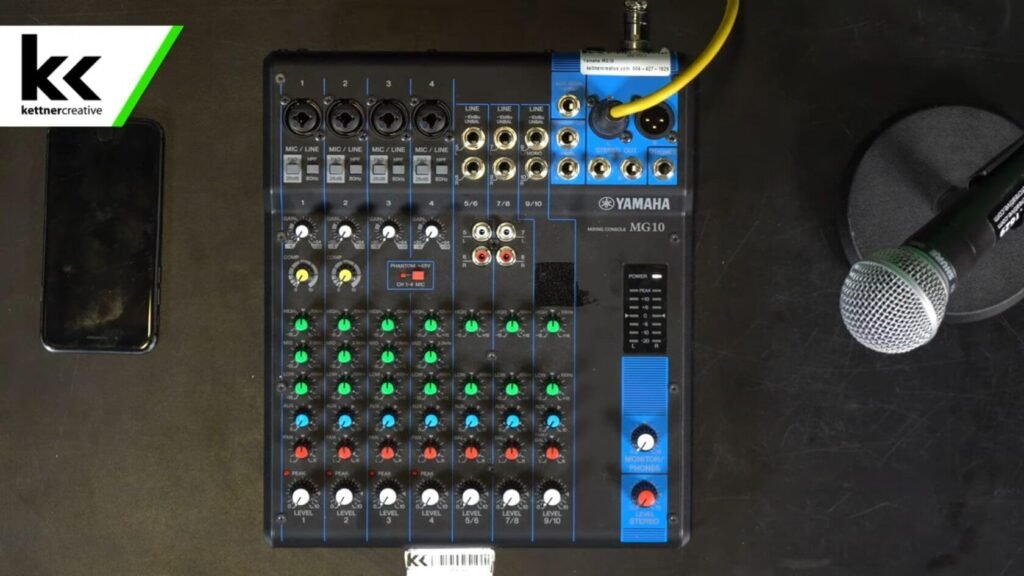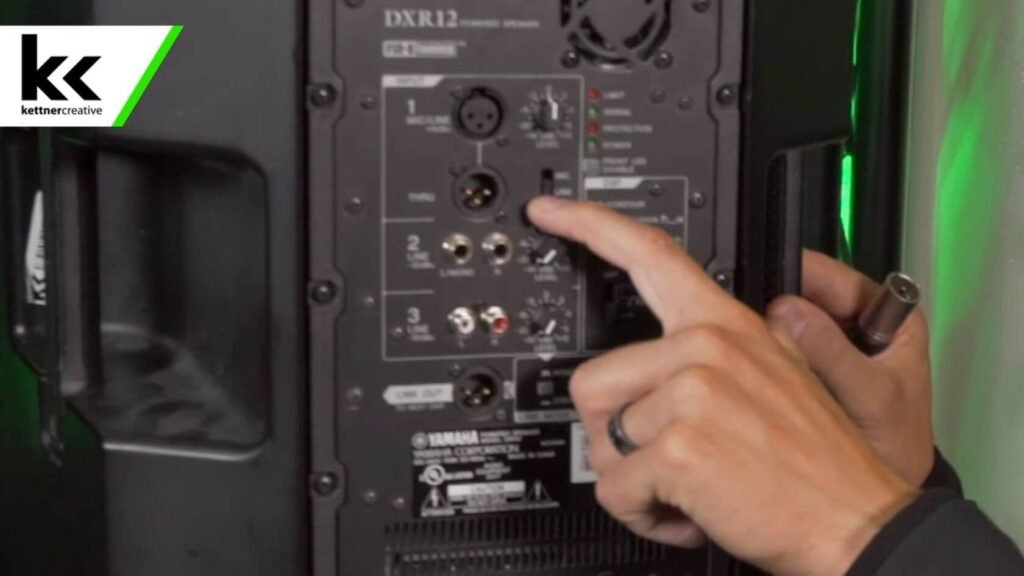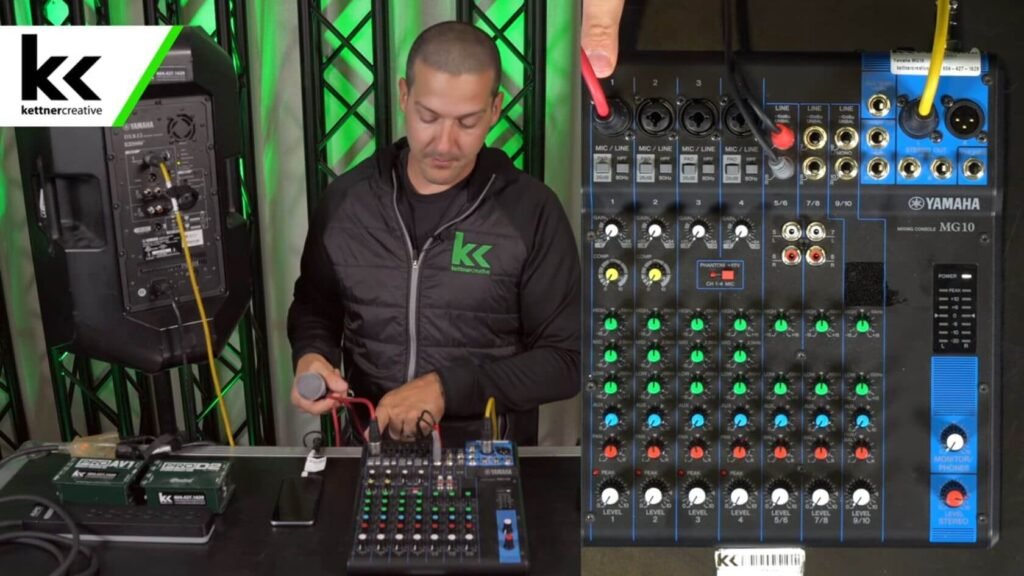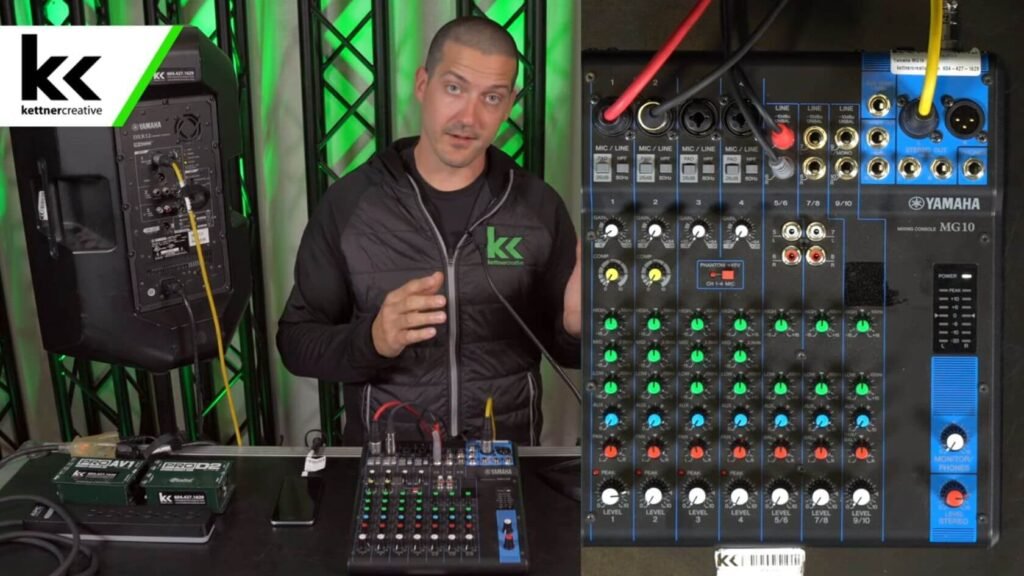The microphone is the main component for communicating with others. It is widely used in various fields, including public speaking, music recording, video conferencing, etc.
Sometimes, it’s required to connect a microphone to a speaker for conferences, meetings, or performance purposes.
If you’re a newbie, then this process can be difficult for you. If you don’t know, how to connect a microphone to a speaker then this tutorial is for you.
In today’s tutorial, we’ll show you How to connect a microphone to a speaker correctly to get the best sound quality.
Quick Access
ToggleTypes of Microphones
Before we dive into the steps for connecting a microphone to a speaker, let’s briefly discuss the different types of microphones available. This will help you choose the right type of microphone for your specific needs.
Dynamic Microphone

A dynamic microphone is durable and versatile, making it suitable for live performances and recording loud sounds. It works by converting sound waves into electrical signals through electromagnetism.
Condenser Microphone

Condenser microphones are more sensitive and offer a greater frequency response compared to dynamic microphones. They are commonly used in studios for recording vocals, instruments, and other subtle sounds.
USB Microphone

Lorem ipsum dolor sit amet, consectetur adipiscing elit. Ut elit tellus, luctus nec ullamcorper mattis, pulvinar dapibus leo.
Video Tutorial
How to Connect a Microphone to a Speaker
Now let’s see, how you can easily connect your microphone to a speaker. Make sure before connecting a microphone to a speaker, that all of the components are connected to a power supply and all of them are turned on.
Connect Mixer With Your Microphone
To connect the microphone with your speaker, first, you need to connect your mixer to your speaker.

After turning on all of your components with the power supply, you need to take an XLR cable to put it on your Stereo Out or Main Out of the mixer. Then connect the other side of the XLR cable to your speaker.

Now you need to connect your speaker to one of the channels on your mixer. This will allow you to control the sound levels of your microphone.
How to Connect Dynamic Microphone to a Speaker
After doing all of the previous steps perfectly, now it’s quite easy to connect your microphone to a speaker.

To connect a dynamic microphone with your speaker, first, you need to take the dynamic microphone, put the XLR microphone on the microphone output port, and put your XLR cable on the Mic/Line input box.
Then you’re ready to go! Speak into the microphone and you should hear your voice coming out of the speaker.
How to Connect a Condenser Microphone to a Speaker
Connecting a condenser microphone to a speaker is similar to connecting a dynamic microphone. However, since condenser microphones require phantom power, make sure you have an audio interface or mixer that provides phantom power before attempting this connection.

After providing the phantom power to your condenser microphone, you just need to connect the XLR cable from the microphone to one of the channels on your mixer and adjust the sound levels accordingly.
Why You Need To Connect a Microphone to a Speaker
There are several reasons, why you should connect your microphone to a speaker. Here are a few of them:
- For public speaking events, conferences, and meetings where the speaker needs to be heard by a large audience.
- For performances or live music events where the sound needs to be amplified for the audience.
- For recording purposes, such as podcasting, voiceovers, or music recordings.
- For video conferencing or online meetings, where clear audio is necessary to effectively communicate with others.
Conclusion
By following today’s step you can easily connect your microphone to a speaker.
We recommend you make sure to choose the right type of microphone for your specific needs and connect all components correctly to get the best sound quality.
And if you’re facing any error then we’re here to help you. Feel free to contact us for any assistance.



